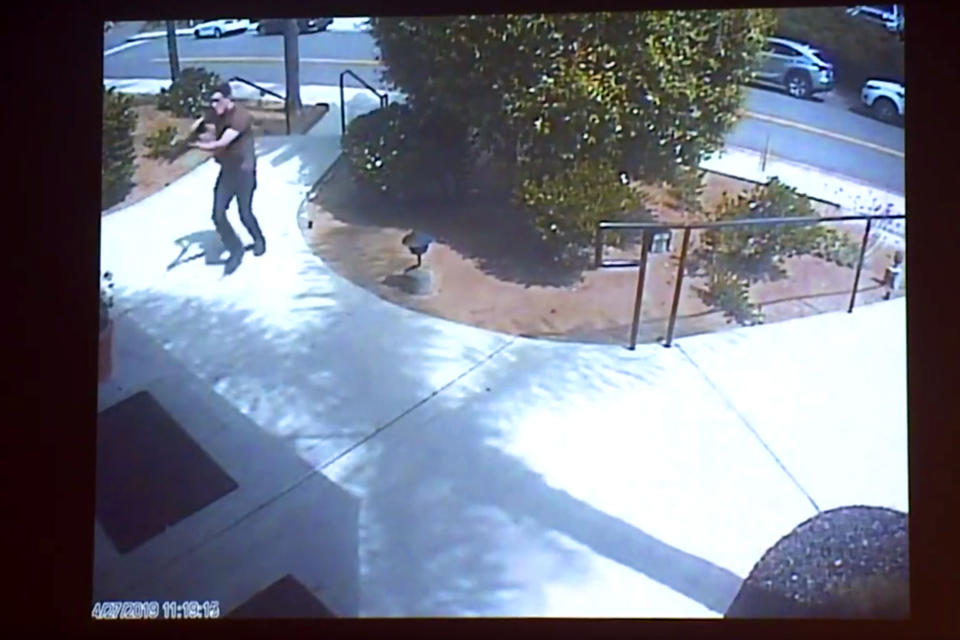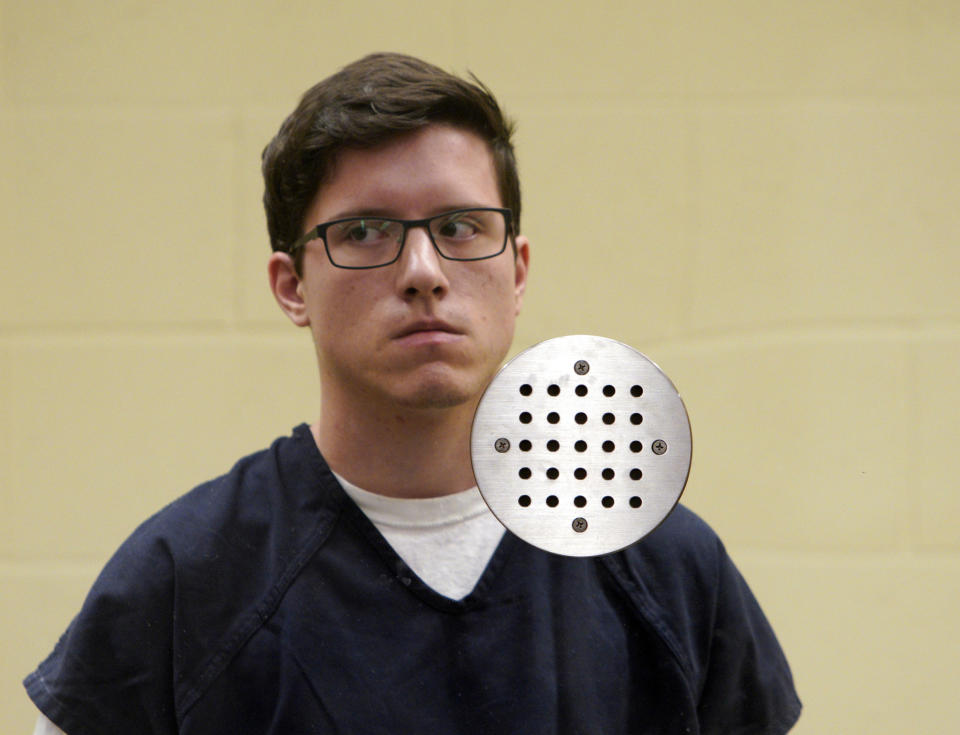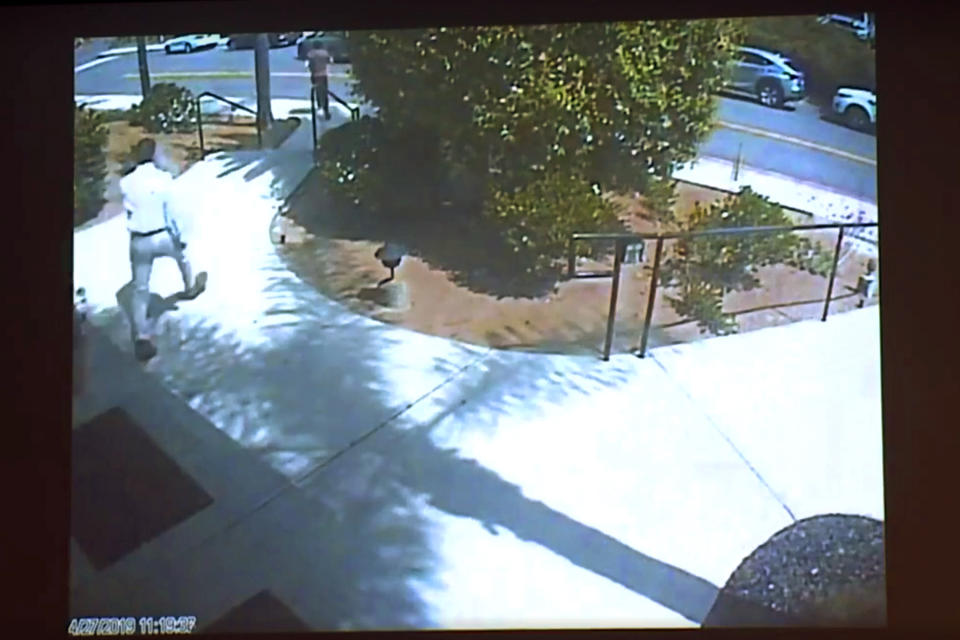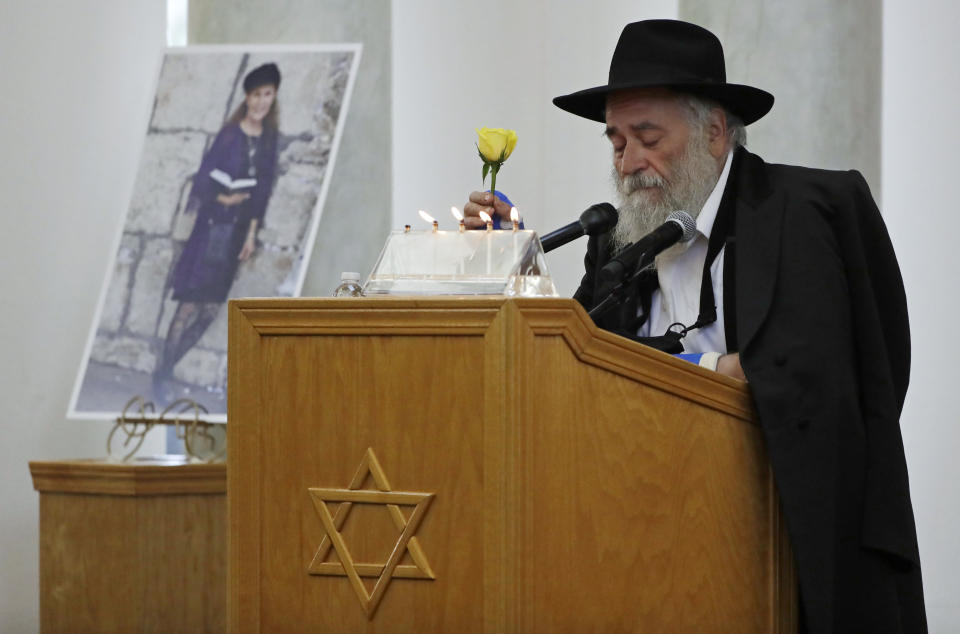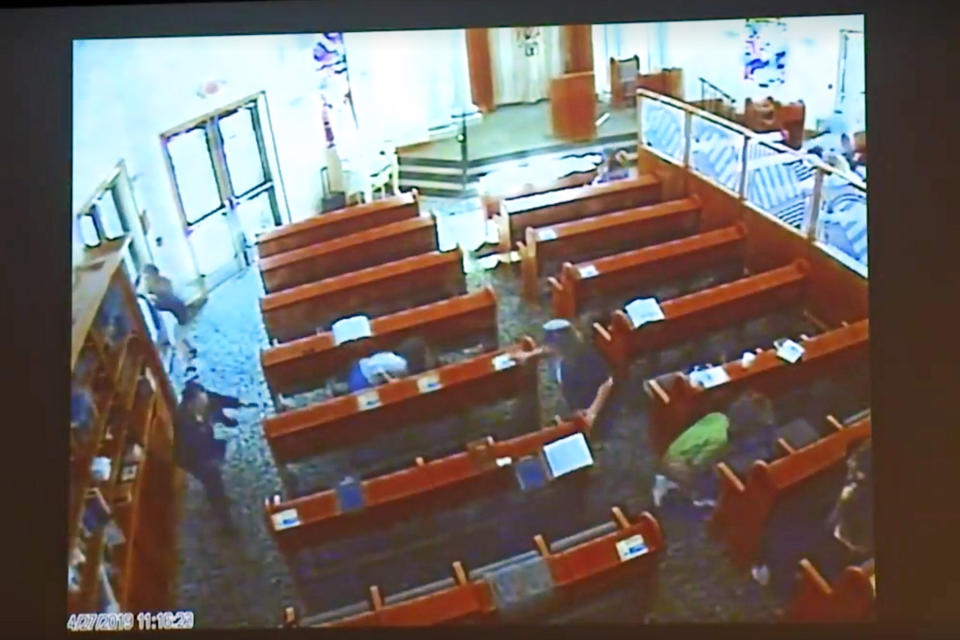Recording details synagogue shooting suspect's 911 call
SAN DIEGO (AP) — Prosecutors on Thursday played a 12-minute recording of a gunman calmly telling a 911 dispatcher that he had just fired an assault rifle inside a synagogue to save white people from Jews, describing terms for a peaceful surrender and scolding law enforcement for taking too much time to find him in his parked car.
John T. Earnest, 20, sat stone-faced with his arms folded on his lap during hours of testimony at a hearing to determine if there is enough evidence for a judge to order him to stand trial on charges of murder, attempted murder and arson.
One woman was killed in the lobby of Chabad of Poway synagogue and three people were wounded during a service on April 27, the last day of Passover. Earnest has pleaded not guilty.
"I'm defending our nation against the Jewish people, who are trying to destroy all white people," the caller, who identified himself as John Earnest, told the dispatcher in an even, almost casual tone.
Earnest gave details of where he was waiting for police in his Honda Civic. He promised to leave his AR-15 assault rifle on the passenger seat and get out of the car with a supply of bullets hanging on the chest of his vest, as if his surrender had been planned in advance.
As the caller spoke about his hatred of Jews, another dispatcher steered him back to describing where he was. He readily answered all questions.
Twice during the call, he expressed impatience that law enforcement hadn't arrived, saying they were bad at their jobs.
"You guys are taking a long-ass time. You realize you're fighting the wrong people?" he said.
The 911 recording was played publicly for the first time during the dramatic day in court that included surveillance video of the shooting and a congregant describing how he singlehandedly confronted the gunman and chased him away.
San Diego police Officer Jonathan Wiese testified that he sped north on Interstate 15 at about 130 mph as reports of a shooting in suburban Poway came in over his radio. It took him just under 10 minutes to find Earnest alone.
The suspect got out of his car as promised, kneeled as ordered, then rose to his feet after being handcuffed.
"His first statement was, 'How's your day going?'" said Wiese, who responded with profanity to indicate it was going badly.
Wiese, who is white, said Earnest asked him if he knew "what the Jews have done to our race."
Oscar Stewart, an electrician who is married with a stepdaughter, spoke publicly for the first time about confronting Earnest as shots rang from the lobby.
"People were falling over each other. It was chaos," he said. "I screamed (to everyone) 'Get down! Get out here.'"
Stewart, 51, was standing toward the back of the service when shots rang. He said he took three or four steps to flee then turned around for reasons he still can't explain, perhaps "a sense of duty." He saw the shooter in the lobby fire two rounds and rushed toward him.
"He was firing in front of me." Stewart said. "I was paying attention to the rifle."
As the gunman struggled to reload, Stewart said he relied on combat training to try to distract him from his plan of attack.
"I told him I was going to kill him," said Stewart, who served in the Persian Gulf War as a Navy bomb disposal expert. "I screamed it out really loud. I kept screaming at him."
Stewart walked across the street after the suspect fled, as shown in the surveillance video, and banged on the side of his car. He worried the shooter might attack a church next door or a grocery store down the street.
Stewart got out of the way after an off-duty Border Patrol agent at the service said from behind that he had a gun. The agent fired about five shots as the gunman drove away erratically, "like pedal to the floor."
Back in the synagogue lobby, Stewart said he checked on a rabbi whose hand was bleeding from a gunshot wound and performed CPR on Lori Kaye, 60, who died.
Dr. Howard Kaye, came to help and recognized his wife.
"He let out like a groan and he fainted," Stewart said.
Outside the mosque, authorities say, the suspect had scrawled the name of a man accused of shootings at two mosques in New Zealand that killed 51 people earlier this year.
The day before the synagogue shooting, Earnest bought a Smith & Wesson AR-15 rifle from a San Diego gun shop, according to federal charges. Officials have said he bought the gun legally.
Superior Court Judge Peter C. Deddeh is expected to rule Friday on whether Earnest should stand trial.
If convicted of the murder charge, classified as a hate crime, he would be eligible for the death penalty, but prosecutors have not said what punishment they plan to seek.
Weeks before the attack, Earnest tried to burn down a mosque in nearby Escondido, where seven people on a spiritual retreat were sleeping, prosecutors say. They awoke to flames and managed to extinguish the fire.
